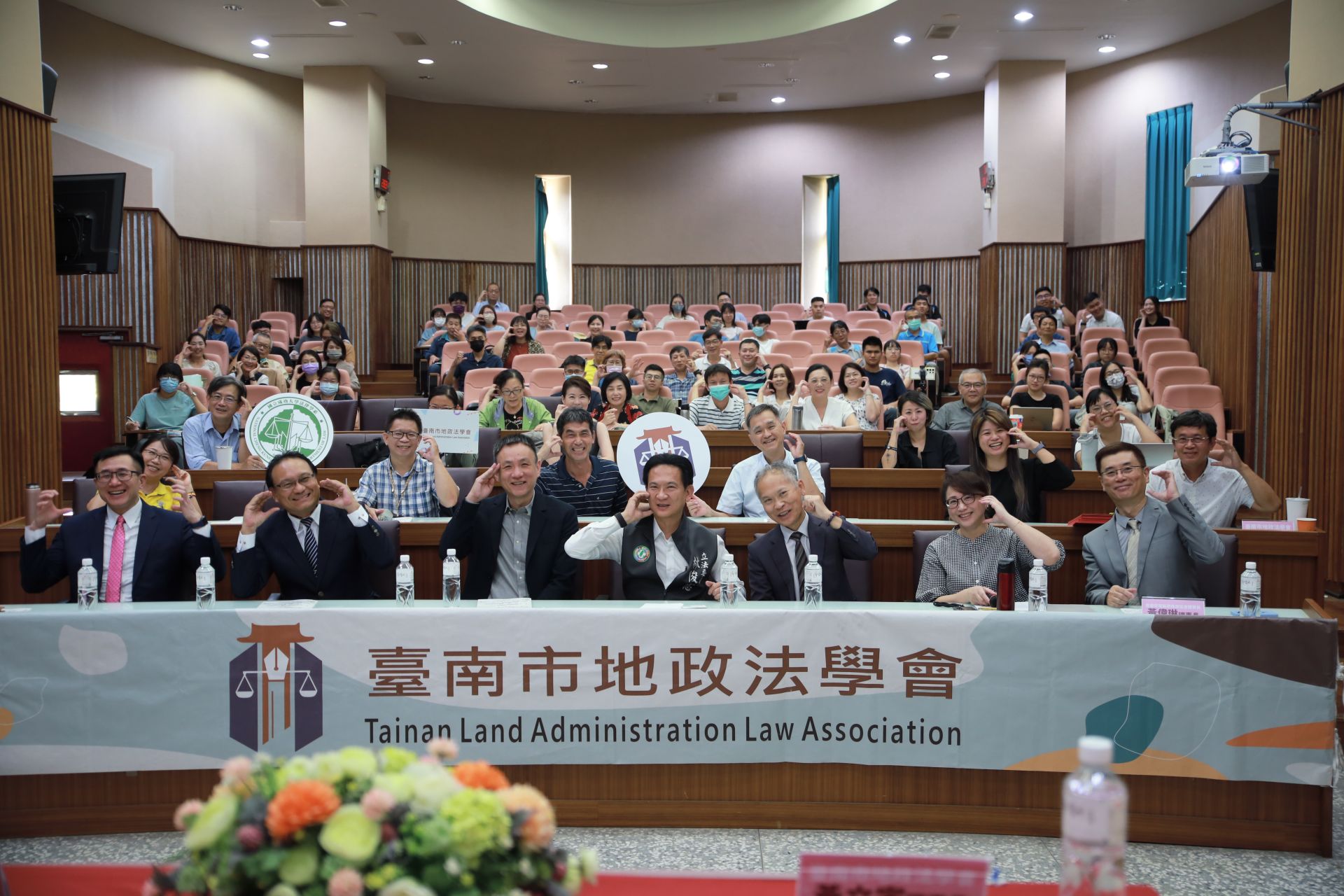The Land Planning Act will be officially implemented after the announcement of the "National Land Function Zoning Map and Land Use Zoning" on May 1, 2024, the 114th year of the Republic of China. On March 23, the College of Social Sciences, Department of Law, and Civil Law Research Center of NCKU jointly organized the "2024 Fort Zeelandia Land Law Forum" with the Tainan City Land Law Society. This year's theme is "The New Order of Land Use Control under Land Planning," where participants from academia, government, and industry discuss in depth the potential issues concerning land rights restrictions and the impacts that may arise after the implementation of the land planning regulations, aiming to mitigate the post-implementation impacts.
The forum invited Associate Professor Nian-Feng Hsin from Feng Chia University, also serving as the Director of the Central Region Planning Center of the National Land Planning Agency, to deliver a speech at the event. Assistant Professor Yu-Guang Chang from Kaohsiung University Law School, Assistant Professor Ming-Hsiao Wu from I-Shou University Department of Public Policy and Management, and Associate Professor Wan-Ju Yeh from NCKU Department of Law served as panelists, jointly exploring the crucial issues of land use control under land planning and safeguarding people's rights.
Associate Professor Nian-Feng Hsin first introduced Taiwan's historical land control regulations and compared them with the upcoming Land Planning Act, highlighting the differences. He also discussed the administrative principles of administrative law, distinguishing between constrained administration and discretionary administration. He supplemented the discussion with experiences from Japan as a point of comparison between the two countries.
Panelist Assistant Professor Yu-Guang Chang supplemented the discussion with insights into spatial development under the Land Planning Act and shared observations from a visit to Japan. Assistant Professor Ming-Hsiao Wu suggested that land use control rules could be tailored to local conditions, establishing more detailed control models within the framework of central land use control rules. Finally, Associate Professor Wan-Ju Yeh used the transformation of agricultural land into factories under the new land planning system as an example to illustrate the issue of land that was previously used without legal regulation, which is now considered illegal under various land control regulations, prompting a reconsideration of how to address these land issues.
Distinguished guests at the event included Shu-Mei Chen, Director of the Tainan City Government Land Administration Bureau, Hsuan-Yuan Yang, Director of the Legal Affairs Office, Dean Hsiao Fu-jen of the College of Social Sciences at NCKU, and Director Wang Hsiao-wen of the Department of Law. Director Shu-Mei Chen further explained the horizontal coordination of government agencies and central and local coordination, emphasizing practical approaches to public communication and policy clarification to correct misconceptions and strengthen promotion as the leading agency in policy promotion. Director Hsuan-Yuan Yang participated throughout the event, expressing the importance of the forum's topic and explaining the increased importance of legal operations at the local government regulatory level in response to the implementation of national land policies. As the host institution, Dean Shaw of the College of Social Sciences expressed the hope that academic and practical exchanges and cooperation could thrive in the college, establishing a good communication and collaboration model to jointly address emerging social issues and leverage the social influence of academic research at NCKU.
Through the participation of scholars, experts, government agencies, and practitioners concerned with this issue, this forum has explored the important issues of land use control under land planning and safeguarding people's rights. Through the dialogue between theory and practice, it has gathered wisdom to jointly research and formulate response strategies for institutional changes, foreseeing and adapting to the transformation of national land spatial order and land governance. The forum has received widespread acclaim.
The forum invited Associate Professor Nian-Feng Hsin from Feng Chia University, also serving as the Director of the Central Region Planning Center of the National Land Planning Agency, to deliver a speech at the event. Assistant Professor Yu-Guang Chang from Kaohsiung University Law School, Assistant Professor Ming-Hsiao Wu from I-Shou University Department of Public Policy and Management, and Associate Professor Wan-Ju Yeh from NCKU Department of Law served as panelists, jointly exploring the crucial issues of land use control under land planning and safeguarding people's rights.
Associate Professor Nian-Feng Hsin first introduced Taiwan's historical land control regulations and compared them with the upcoming Land Planning Act, highlighting the differences. He also discussed the administrative principles of administrative law, distinguishing between constrained administration and discretionary administration. He supplemented the discussion with experiences from Japan as a point of comparison between the two countries.
Panelist Assistant Professor Yu-Guang Chang supplemented the discussion with insights into spatial development under the Land Planning Act and shared observations from a visit to Japan. Assistant Professor Ming-Hsiao Wu suggested that land use control rules could be tailored to local conditions, establishing more detailed control models within the framework of central land use control rules. Finally, Associate Professor Wan-Ju Yeh used the transformation of agricultural land into factories under the new land planning system as an example to illustrate the issue of land that was previously used without legal regulation, which is now considered illegal under various land control regulations, prompting a reconsideration of how to address these land issues.
Distinguished guests at the event included Shu-Mei Chen, Director of the Tainan City Government Land Administration Bureau, Hsuan-Yuan Yang, Director of the Legal Affairs Office, Dean Hsiao Fu-jen of the College of Social Sciences at NCKU, and Director Wang Hsiao-wen of the Department of Law. Director Shu-Mei Chen further explained the horizontal coordination of government agencies and central and local coordination, emphasizing practical approaches to public communication and policy clarification to correct misconceptions and strengthen promotion as the leading agency in policy promotion. Director Hsuan-Yuan Yang participated throughout the event, expressing the importance of the forum's topic and explaining the increased importance of legal operations at the local government regulatory level in response to the implementation of national land policies. As the host institution, Dean Shaw of the College of Social Sciences expressed the hope that academic and practical exchanges and cooperation could thrive in the college, establishing a good communication and collaboration model to jointly address emerging social issues and leverage the social influence of academic research at NCKU.
Through the participation of scholars, experts, government agencies, and practitioners concerned with this issue, this forum has explored the important issues of land use control under land planning and safeguarding people's rights. Through the dialogue between theory and practice, it has gathered wisdom to jointly research and formulate response strategies for institutional changes, foreseeing and adapting to the transformation of national land spatial order and land governance. The forum has received widespread acclaim.
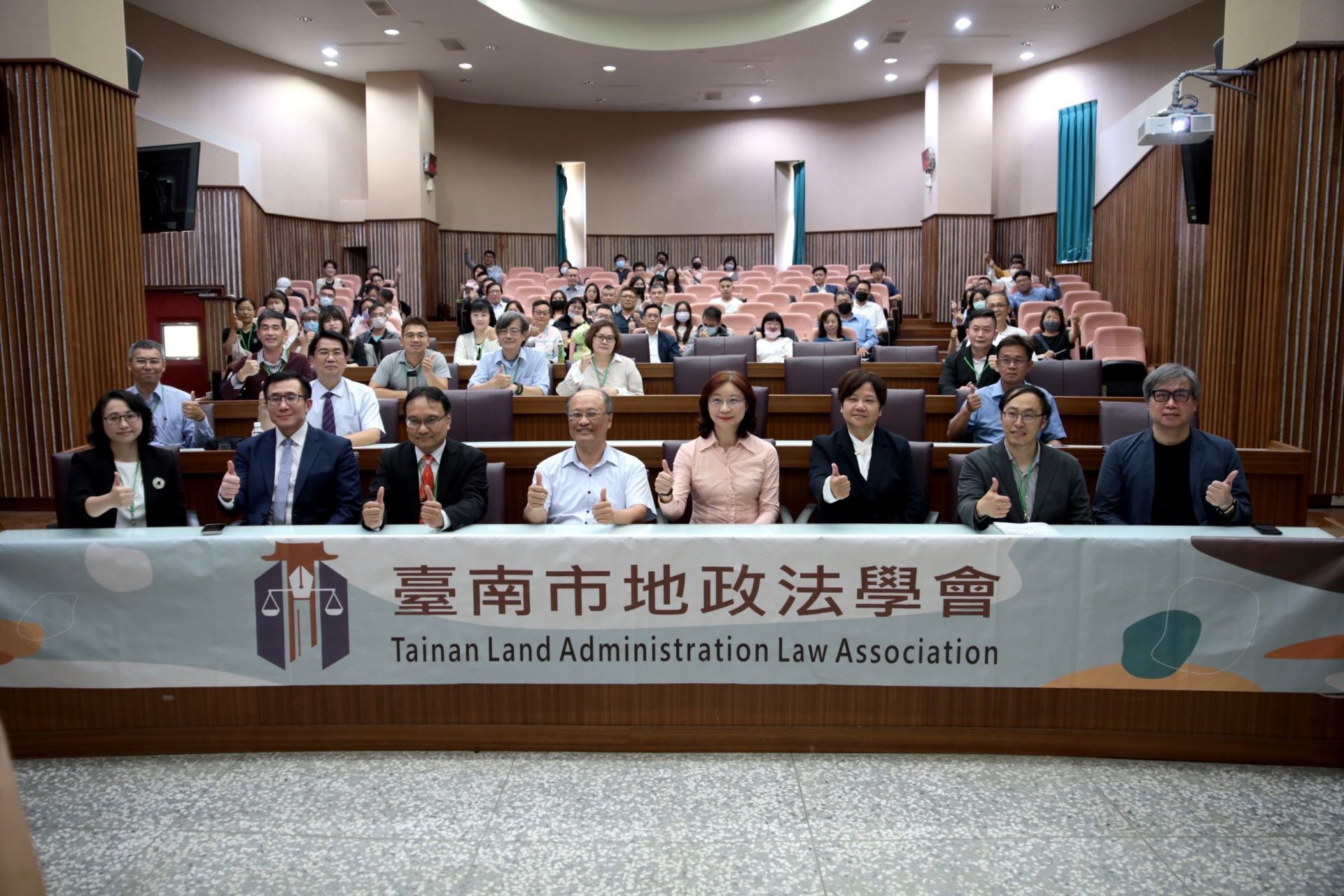
The 2024 Urban Land Governance and Legal Forum.
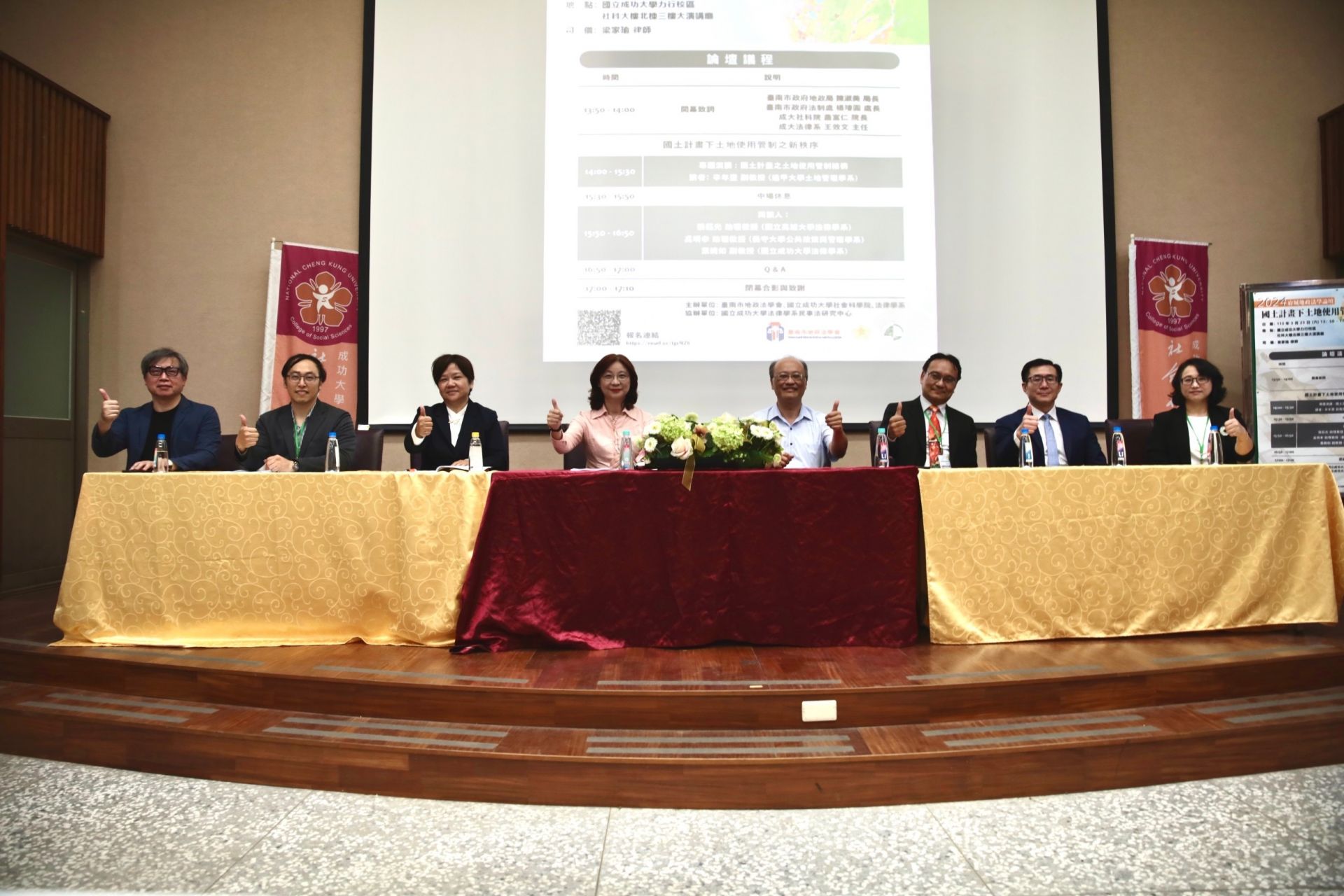
The 2024 Urban Land Governance and Legal Forum: Anticipating and Responding to the Transformation and Adaptation of the New Order in Territorial Spatial Planning and Land Governance.
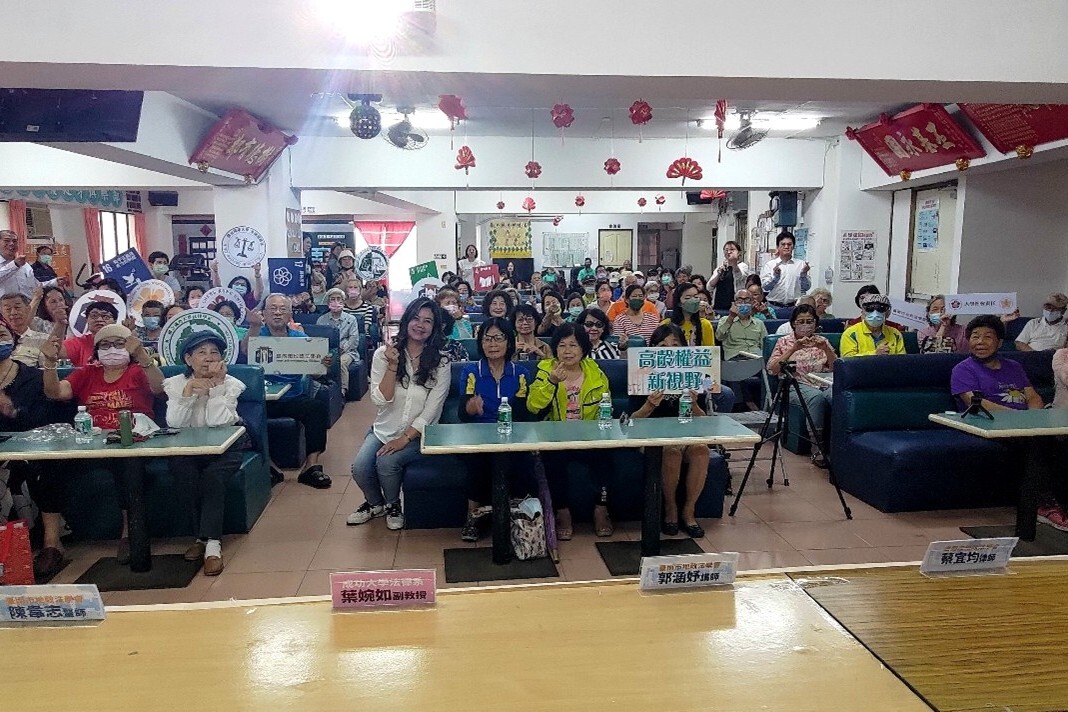
SDG16NCKU Law Department Promotes Legal Education on Elder Rights in the Community – All Are Welcome to Join
View more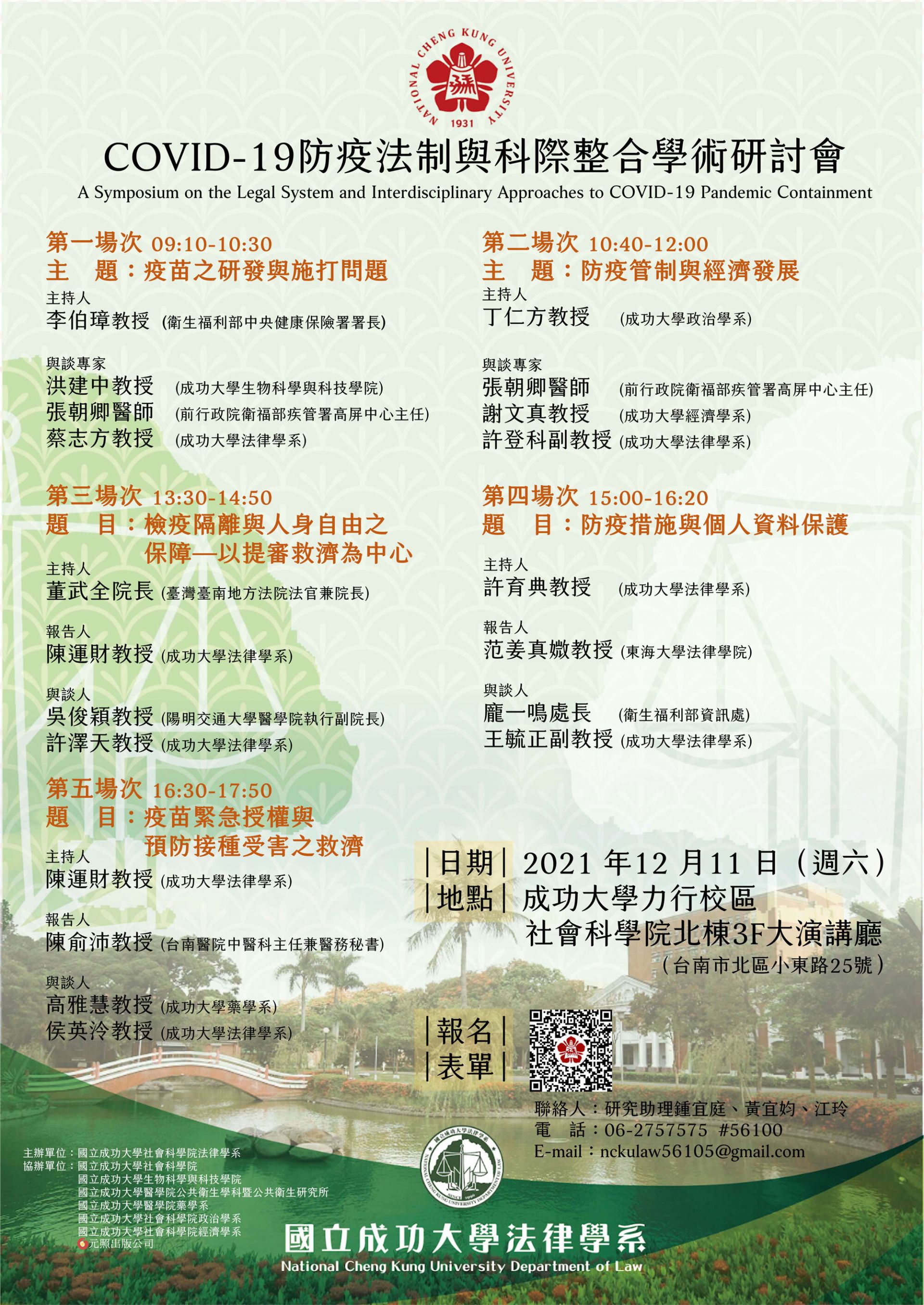
SDG16A Symposium on the Legal System and Interdisciplinary Approaches to COVID-19 Pandemic Containment
View more